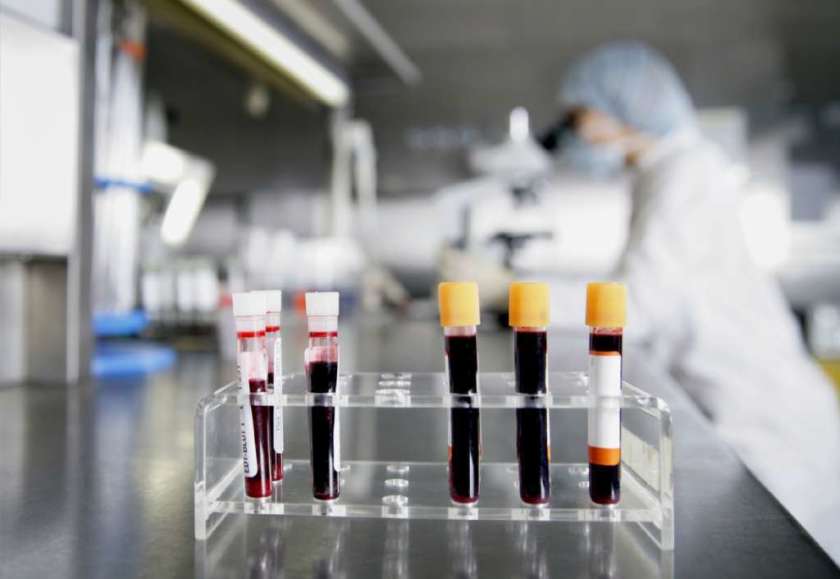What you need to know about Cancer Screening
Contents
- 1 What you need to know about Cancer Screening
- 2 What does the Procedure Involve?
- 3 How Long Should I Stay in at my Destination?
- 4 What’s the Recovery Time?
- 5 What About Aftercare?
- 6 What’s the Success Rate?
- 7 Are there Alternatives to Cancer Screening?
- 8 What Should You Expect Before and After the Procedure
Cancer screening is performed to look for cancer before signs or symptoms appear. It can help find cancer at an early stage, making it easier for the condition to be treated. By the time signs and symptoms appear, cancer may have spread and grown, making it more difficult to treat. The main goals of cancer screening are:
-
To reduce the number of people developing the disease
-
To reduce the number of people dying from the disease
-
To prevent deaths from cancer.
It may seem scary when your doctor suggests a cancer screening. However, it is important to remember that having to undergo cancer screening does not always mean that your doctor thinks you have cancer. In many cases, screening tests are done when you have no signs of cancer.

What does the Procedure Involve?
Every type of cancer has its own screening tests. However, some types of cancer currently do not have an effective screening method and the development of new cancer screening tests are in active research. In general, cancer screening may include:
-
Physical exam and checking your medical history – your doctor may do a physical exam of your body to check for your overall health. Your doctor will try to find signs of disease and anything abnormal in your body, such as lumps. Your medical history, including health habits and past diseases and treatments, will also be checked.
-
Laboratory tests – you will have to undergo medical procedures that test samples of blood, urine, tissue, or other substances in your body to check for cancer.
-
Imaging procedures – these are procedures that take pictures of areas inside of your body.
Genetic tests – cells or tissue are analyzed in a laboratory to look for changes in your chromosomes or genes. These changes could be a sign that you have or are at risk of having a specific condition or disease, including cancer.
How Long Should I Stay in at my Destination?
Cancer screening is typically done as an outpatient procedure, so you should be able to leave the hospital on the same day. However, since the results may take some time (usually about 7 days) to be completed, you may want to stay in the area for about a week. Once the result is ready, you will have to attend a follow-up appointment with your doctor to discuss it. If everything is alright, you should be able to leave the country right after the follow-up appointment.
What’s the Recovery Time?
Cancer screening has little to no downtime. It is advisable that you rest for the remainder of the day and resume your normal activities the next day after your cancer screening. However, you need to avoid any strenuous activities, such as vigorous exercise, for several days.
What About Aftercare?
There is typically no special aftercare following cancer screening. Depending on the type of test you have, your doctor may ask you to avoid certain types of medications, such as blood-thinning medication for several days. Your doctor may also give you a special diet to follow and tell you any restrictions during your recovery period.
What’s the Success Rate?
Cancer screening is generally safe and effective. It has been proven to save thousands of lives every year by detecting cancer at an early stage. However, it is not perfect and it carries some potential risks. Including:
-
False positives – sometimes a screening test may suggest that a person has cancer when they actually do not.
-
False-negative – in some cases, the result may show that a person does not have cancer when they actually do.
-
Overdiagnosis – it may find slow-growing cancers that would not have caused any harm during a person’s lifetime. Overdiagnosis can cause some people to receive potentially stressful, painful, harmful, and/or expensive treatments they actually do not need.
-
Serious problems – some cancer screening procedures can cause serious problems, such as bleeding. For instance, colon cancer screening with colonoscopy can cause the lining of your color to tear up.
Are there Alternatives to Cancer Screening?
There is no alternative to cancer screening. If you cannot or do not want to undergo cancer screening, it is important to talk to your doctor about it. Cancer screening is important, should your doctor find any abnormalities or disease, they can treat it as early as possible. This will increase your survival rate.
What Should You Expect Before and After the Procedure
Before cancer screening, you may or may not have cancer in your body and your doctor may not be able to make a diagnosis yet. After cancer screening, you and your doctor will know for sure. If cancer cells are found through the screening, your doctor creates a treatment plan for you and treat cancer at its early stage. This means that after an effective cancer screening test, you have a higher chance to survive the disease.
For an in-depth analysis of a Cancer Screening Procedure, watch this short video.
To check prices or to book a Cancer Screening Procedure, in Thailand or anywhere else in the world, head on over to MyMediTravel now!

